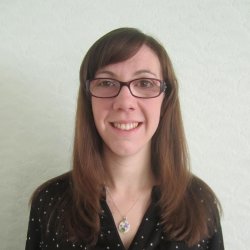
Heather Campbell
About
Heather completing studies for her Mphys in Astrophysics with Research Placement at the University for Sussex in 2009. After that she moved to the Institute of Cosmology & Gravitation, University of Portsmouth for her PhD, where she studied cosmology using Type Ia Supernovae. She was working on new ways to classify supernovae, with the goal of improving methods for measuring the accelerated expansions of the Universe. For this project Heather used data from the Sloan Digital Sky Survey.
Heather then spent two and a half years as a postdoctoral researcher at the Institute of Astronomy, University of Cambridge, where she was working on the Gaia Satellite as their supernovae expert and helping develop their outreach programme. While there she had many opportunities to use telescopes around the world, such as in Chile, which was her highlight of being an astrophysicist.
For the last 3 years Heather has been the SEPnet Outreach & Ogden Science Officer, in the Department of Physics at the University of Surrey. This is an extremely varied and fun job, which allows Heather to share her interest and excitement of physics with people of all ages. From outreach events in library for pre school children, through Astronomy evenings for all ages and lots of activities involving lego. Something Heather is particularly passionate about is trying to improve the gender imbalance in physics. One of the ways she is trying to address this is by managing and piloting a SEPnet project called Shattering Stereotypes, which aims to tackle and raise awareness of gender stereotyping in schools.
In her spare time Heather enjoys playing the piano, steam trains, wildlife and amateur astronomy. Although, she is getting married in April so not much spare time at the moment! After her wedding Heather is off to India on Honeymoon and is very excited about trying to see tigers in the jungle and travelling on their mountain steam railways.
Publications
The Sloan Digital Sky Survey (SDSS) started a new phase in August 2008, with new instrumentation and new surveys focused on Galactic structure and chemical evolution, measurements of the baryon oscillation feature in the clustering of galaxies and the quasar Ly alpha forest, and a radial velocity search for planets around ~8000 stars. This paper describes the first data release of SDSS-III (and the eighth counting from the beginning of the SDSS). The release includes five-band imaging of roughly 5200 deg^2 in the Southern Galactic Cap, bringing the total footprint of the SDSS imaging to 14,555 deg^2, or over a third of the Celestial Sphere. All the imaging data have been reprocessed with an improved sky-subtraction algorithm and a final, self-consistent photometric recalibration and flat-field determination. This release also includes all data from the second phase of the Sloan Extension for Galactic Understanding and Evolution (SEGUE-2), consisting of spectroscopy of approximately 118,000 stars at both high and low Galactic latitudes. All the more than half a million stellar spectra obtained with the SDSS spectrograph have been reprocessed through an improved stellar parameters pipeline, which has better determination of metallicity for high metallicity stars.
Building on the legacy of the Sloan Digital Sky Survey (SDSS-I and II), SDSS-III is a program of four spectroscopic surveys on three scientific themes: dark energy and cosmological parameters, the history and structure of the Milky Way, and the population of giant planets around other stars. In keeping with SDSS tradition, SDSS-III will provide regular public releases of all its data, beginning with SDSS DR8 (which occurred in Jan 2011). This paper presents an overview of the four SDSS-III surveys. BOSS will measure redshifts of 1.5 million massive galaxies and Lya forest spectra of 150,000 quasars, using the BAO feature of large scale structure to obtain percent-level determinations of the distance scale and Hubble expansion rate at z100 per resolution element), H-band (1.51-1.70 micron) spectra of 10^5 evolved, late-type stars, measuring separate abundances for ~15 elements per star and creating the first high-precision spectroscopic survey of all Galactic stellar populations (bulge, bar, disks, halo) with a uniform set of stellar tracers and spectral diagnostics. MARVELS will monitor radial velocities of more than 8000 FGK stars with the sensitivity and cadence (10-40 m/s, ~24 visits per star) needed to detect giant planets with periods up to two years, providing an unprecedented data set for understanding the formation and dynamical evolution of giant planet systems. (Abridged)
This paper describes the data release of the Sloan Digital Sky Survey-II (SDSS-II) Supernova Survey conducted between 2005 and 2007. Light curves, spectra, classifications, and ancillary data are presented for 10,258 variable and transient sources discovered through repeat ugriz imaging of SDSS Stripe 82, a 300 deg2 area along the celestial equator. This data release is comprised of all transient sources brighter than r 22.5 mag with no history of variability prior to 2004. Dedicated spectroscopic observations were performed on a subset of 889 transients, as well as spectra for thousands of transient host galaxies using the SDSS-III BOSS spectrographs. Photometric classifications are provided for the candidates with good multi-color light curves that were not observed spectroscopically, using host galaxy redshift information when available. From these observations, 4607 transients are either spectroscopically confirmed, or likely to be, supernovae, making this the largest sample of supernova candidates ever compiled. We present a new method for SN host-galaxy identification and derive host-galaxy properties including stellar masses, star formation rates, and the average stellar population ages from our SDSS multi-band photometry. We derive SALT2 distance moduli for a total of 1364 SN Ia with spectroscopic redshifts as well as photometric redshifts for a further 624 purely photometric SN Ia candidates. Using the spectroscopically confirmed subset of the three-year SDSS-II SN Ia sample and assuming a flat ΛCDM cosmology, we determine M = 0.315 0.093 (statistical error only) and detect a non-zero cosmological constant at 5.7 .